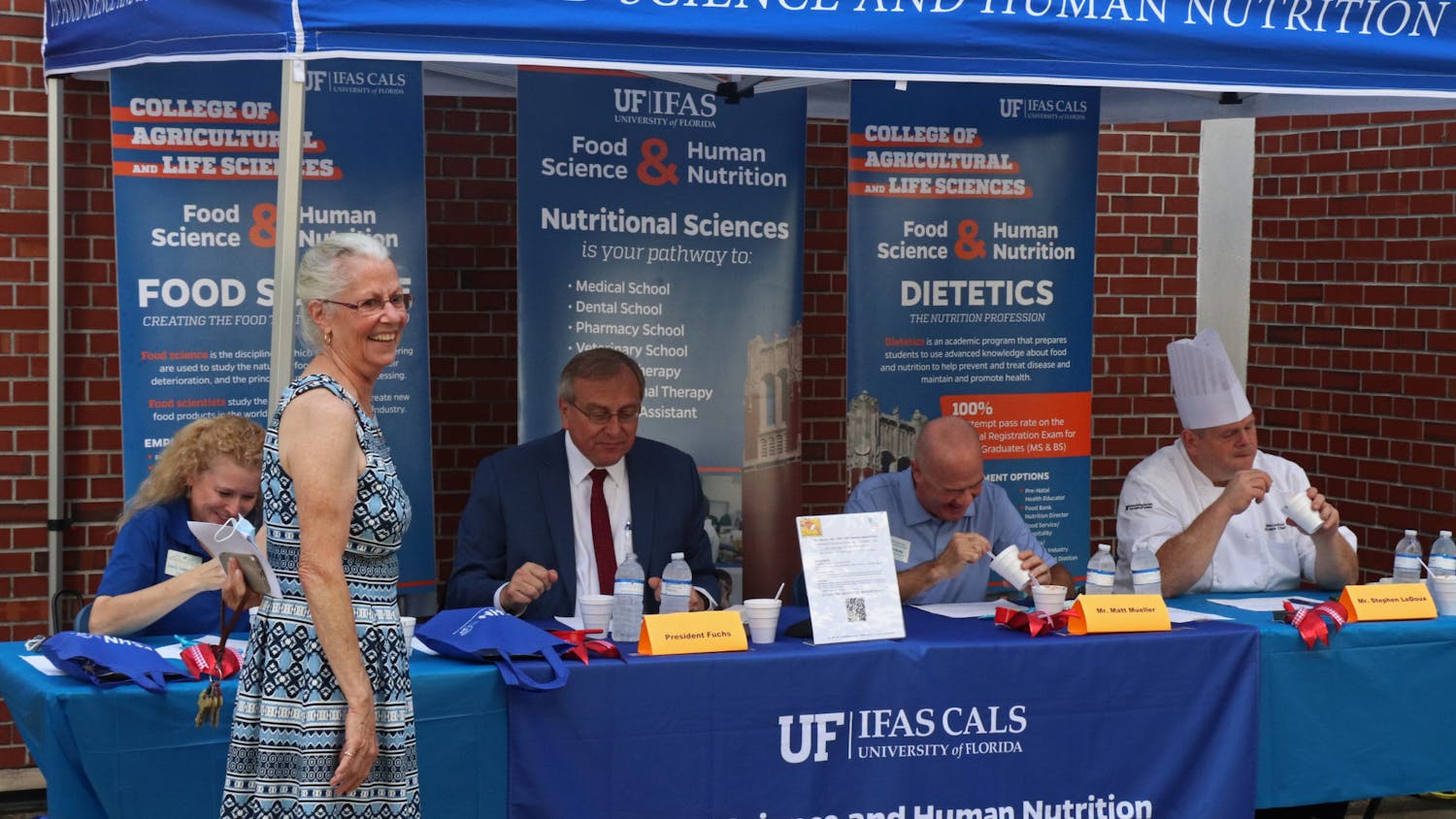Ray Howard was known as the guy with the loud laugh by his colleagues at Santa Fe College, where he worked as a private tutor.
To his doctors at Shands Health Care at UF, he was known as a fighter battling brain cancer.
And even with a college degree, he ended up living outside an abandoned steakhouse on Archer Road and was discovered by a police officer and former classmate.
With the economy in shambles and unemployment rates at their highest since the early 1980s, the face of hunger is changing in Alachua County.
The faces are starting to look more like Howard’s.
The hungry include educated citizens with homes and families caught in an economic rip current that haven’t yet made it to shore.
Alachua County has published a plan to reduce hunger that includes ideas like expanding the customer service capabilities of emergency food programs, increasing the amount of healthy food available in assistance programs and educating the community about the government programs.
John Skelly, Alachua County’s Poverty Reduction Program director, said about 27,000 people in the county already receive food stamps as part of the Supplemental Nutrition Assistance Program. He estimates that number is only one-third of the people who qualify.
Skelly said government programs are just a Band-Aid for the problem.
“Charity is filling in the gap where there’s a lack of justice,” he said.
Bread of the Mighty Food Bank is a food pantry trying to fill that gap.
“The problem is that food is harder to get,” said Anne Voyles, the director of Bread of the Mighty Food Bank.
She said that during this time of year, with Thanksgiving and Christmas approaching, the charity receives a large amount of personal donations.
The organization tries to help about 400 people on Thanksgiving Day but can’t always feed the largest amount of people possible because it has to save food for regular days too.
Bread of the Mighty Food Bank also helps smaller groups with their own Thanksgiving meal projects.
“Everybody wants something to be thankful for,” she said.
Voyles said she gets calls from people who have never had to ask for help before.
When callers ask her to forgive them, she said she reminds them that one day they will be back on their feet and can return the favor.
It could be someone like Howard, who spent four months living on the street, suffering from seizures caused by his brain cancer and eating only by the kindness of strangers.
“To be on the other end of that is quite a wake-up call,” he said.
“If there’s anything I learned from being homeless, it would be that you don’t give up when you’re in a bad situation.”





